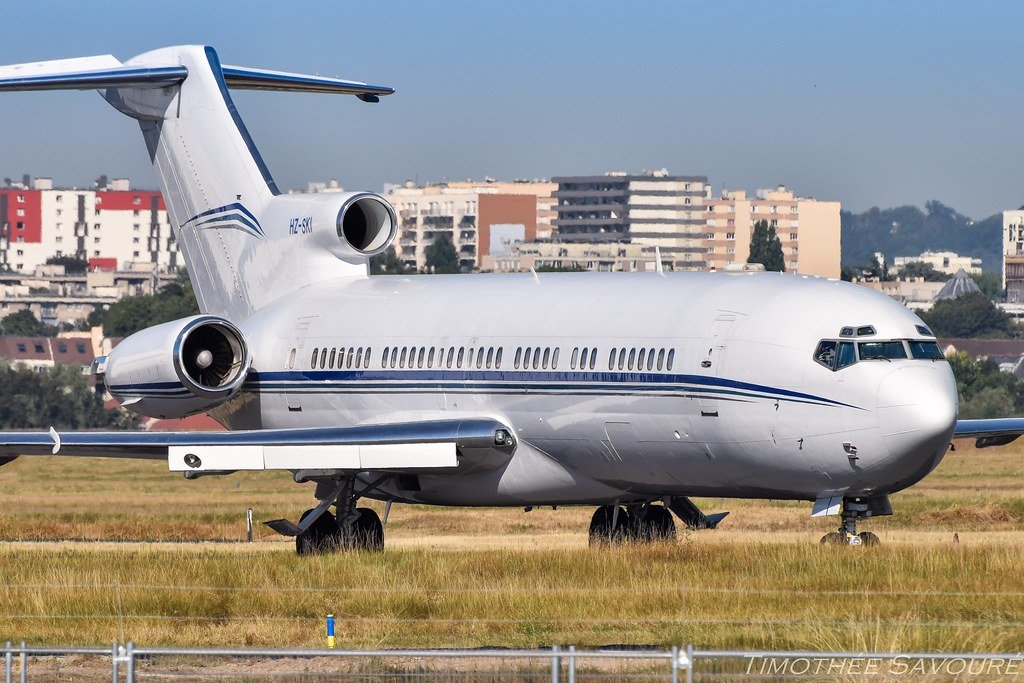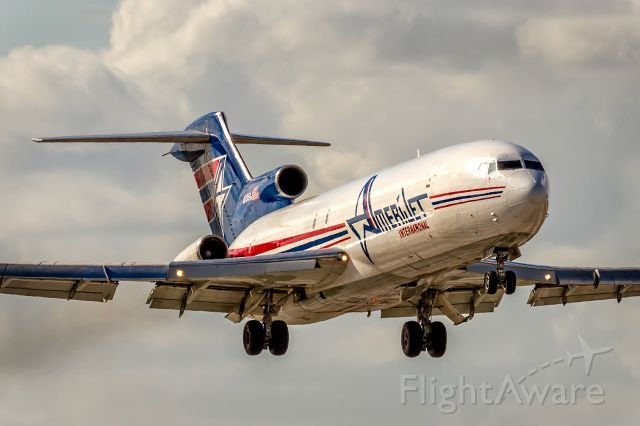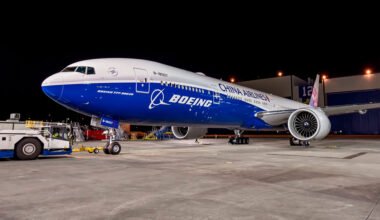The Boeing 727 was proved to be a versatile and reliable airliner within the industry. The trijet B727 was very successful and demanding among airlines in the world. Especially because it has the ability to use smaller runways while still flying medium-haul routes. The B727 aircraft has carried 2.3 billion passengers, equivalent to half the world’s population. Due to its fame and demand worldwide, the company decided to introduce a new and advanced version of the existing aircraft. When overtaken by B737, the B727-200 program was the most successful aircraft program in history.
The stretched version – Boeing 727-200
Boeing B727-200 is basically known as the stretched version of the B727-100. However, it is the second main version of the Boeing 727. Boeing launched the first B727-200 in 1965. This series’s first aircraft was flown on July 27, 1967, and received FAA certification on November 30, 1967. The 727-200 entered the service with Northeast Airlines on 14 December 1967. The -200 version is 6.1 meters (20 feet) longer than the -100 version. That is why it is called “The stretched version.” Also, it was modified with some extra features. The 727-200 was added with a 3 meter (10 feet) fuselage section in front of the wings and another 3 meters fuselage section behind them.

Read More: Variants of Boeing 727 – B727-100 (Part I)
The wingspan and height remain the same for both the 727-100 and -200 versions. Even though the maximum gross weight of the original 727-200 was the same as 727-100. However, some other modifications were done in its advanced version. In the -200 series, the air intake of the middle engine is round instead of the oval as in the -100 series. The 727-200 moved the right service door to the front of the aircraft. In fact, it added an emergency exit on each side of the rear, providing a particular recognition feature for the -200 series. A total of 310 929-200s were delivered before it was replaced on the production line by 727-200 advanced.
727-200C
Boeing 727-200C was a convertible passenger cargo version. This version of 727-200 was not very popular. As a matter of fact, 727-200C was built only one. It has a cargo door in the left front fuselage and many cabin windows. The aircraft was built in 1975. The First Air received the 727-200C (C-GXFA) in 1994 after being operated by Air Transat. In 2009, First Air retired their 727-200 fleet, thus ending the service for 727-200C.
727-200 Advanced
The popularity of the 727-200 led to the introduction of the advanced 200 series. The advanced version of 727-200 was introduced in 1975. Moreover, it comes with an increased maximum take-off weight and better performance than the original 200 series. The advanced features show improvements in lifting capacity through airframe strengthening, more powerful engines, and an option for a longer version with additional fuel carrying capacity.
The 727-200 Advanced has increased its maximum take-off weight by 185,800-210,000 lb (84.3-95.3 ton). Furthermore, it increased the range from 1,930-2,550 nautical miles (3574.3-4722.6 km) or 32%. The aircraft made its first delivery in mid-1972. Due to the increasing demand for the advanced version, Boeing had to raise production to more than a hundred per year. A total of 935 727-200 advanced were delivered of the passenger model. The 727-200 Advanced remained the primary production model until production ceased in 1984.
727-200F Advanced
A freighter version of 727-200 Advanced was introduced in 1981, designated as 200F Advanced. After their career as passenger aircraft, many 727-200s ended up being converted into cargo aircraft. In addition, Boeing also built a dedicated freighter version. Both of the versions are designated as Boeing 727-200F. However, the newly built aircraft had no cabin windows.
This version has some modified features such as a strengthened fuselage structure, an 11 ft 2 in. by 7 ft 2 in. forward main deck freight door. Above all, fifteen of these aircraft were only built for Federal Express (FedEx). This was the last production variant of the 727 to be developed by Boeing. The last 727 aircraft completed by Boeing was a 727-200F Advanced.

Super 27 (Boeing 727RE)
Back in the 1990s, the noise regulations became more strict. To maintain the useful life of the 727s, many aircraft received modifications to make them stage III compliant. This involved the addition of hush kits to the engine, which are often visible by longer exhaust pipes. Some companies made changes to the trailing edge flaps on the wings or added winglets to improve fuel efficiency.
Valsan Partners developed the Super 27 model, also known as Boeing 727RE. The side engines of the aircraft are replaced by more efficient, quieter JT8D-217C/219, and the center engine gains a hush kit. Also, the fuel consumption is reduced by 10-12%, range and restricted airfield performance are improved. Later, speed was increased by 50 mph, and winglets were added to some aircraft to increase fuel efficiency.
Featured Image: Lukas Schmid



